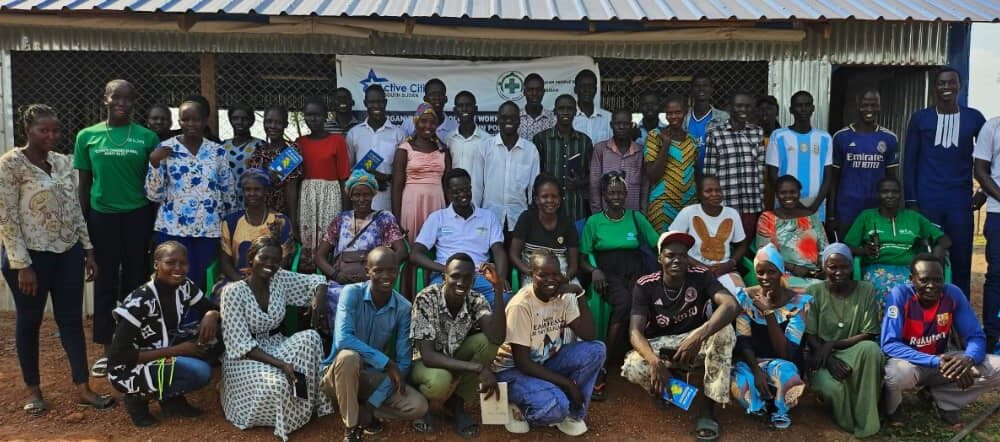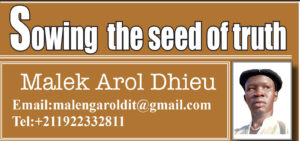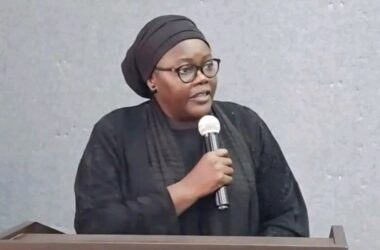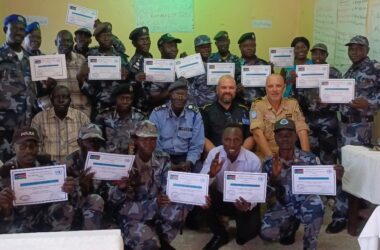By Staff Writer
A youth-led dialogue focused on amplifying young voices in South Sudan’s permanent constitution-making process and electoral participation has concluded in Unity State.
Organized by Active Citizen South Sudan (ACSS), at the Protection of Civilians (PoC) site in Bentiu, Unity State, the event brought together 40 participants drawn from youth groups, associations, women’s unions, key government officials, electoral bodies, and independent commissions operating at the state level.
The dialogue also marked a critical milestone in efforts to empower young people to take part in shaping the country’s democratic future.
In his presentation, Gai Makiew Gai, the Program Manager at ACSS revealed that the central objective of the initiative was to champion youth awareness about their rights in political decision-making and their constitutional right to vote, especially as the country prepares for national elections slated for 2026.
“The ongoing permanent constitution-making process didn’t represent youth voices as expected because all the discussions related to permanent constitution seem to have been conducted and centralized at national level,” he explained
According to Gai, discussions on the constitution-making process had largely concentrated on top, excluding voices from the grassroots, particularly the youth in rural and conflict-affected areas like Unity State.
In his words, the goal was to “widen awareness among youth and have their views incorporated into the constitution”.
Gai emphasized that the forum was not only an educational platform but also a form of civic empowerment that encourages youth to take ownership of their future.
As the 2026 elections approach, he said it is crucial for young people to understand their role in governance and accountability.
The dialogue sparked honest reflections from participants, many of whom admitted that they had little knowledge about the permanent constitution-making process.
“We, the youth of this state, in particular, do not know and are not aware about the process of permanent constitution making process,” said Gatwich Mayak, a representative of the Unity State Youth Union.
“Sometimes, we hear people talking about it on social media, but we have never had discussions like this at the state level. This initiative by ACSS and the donors is one of the most educational forums we have ever participated in.”
Mayak stressed that awareness forums were vital in closing the information gap and ensuring that youth play a meaningful role in shaping the country’s governance structures.
His comments reflect a broader sentiment among the participants: young people want to be more than just spectators in the political process – they want to be active contributors.
Funded by the Norwegian People’s Aid (NPA), the initiative also addressed broader issues affecting youth engagement, such as illiteracy and early-child marriage.
Nyewech Latjor, a passionate youth leader and speaker at the event, called on young people to steer clear of divisive politics but to remain committed to participating in meaningful national discourses, especially the constitutional process.
“The youth group should avoid involving themselves in dirty politics while still young, but when it comes to participation in the permanent constitution making process, we must do so because those are our constitutional mandates,” Latjor stated.
“I am strongly encouraging young people to concentrate on studies to become good future leaders of this country.”
Latjor also underscored the importance of girl-child education, calling it a cornerstone of nation-building. “Avoid convincing young girls to marry at an early age,” she said, urging participants to champion education as a tool for empowerment and transformation.
As the dialogue concluded, the sense of urgency and responsibility among the youth was palpable. Participants expressed their commitment to spreading awareness in their communities and mobilizing more young people to participate in civic and political life.
With South Sudan inching toward a new constitution and its first democratic elections, the youth of Unity State are signaling that they are ready to claim their space – not just as beneficiaries, but as architects of the nation’s future. Through such forums, the foundation for a more inclusive and participatory democracy is being laid, one dialogue at a time.




